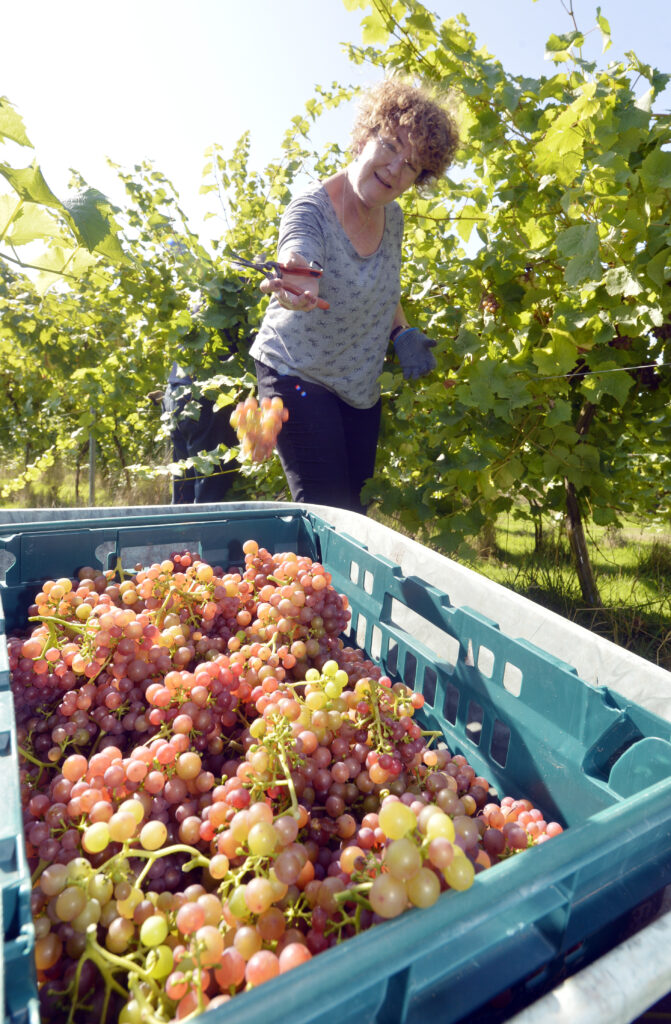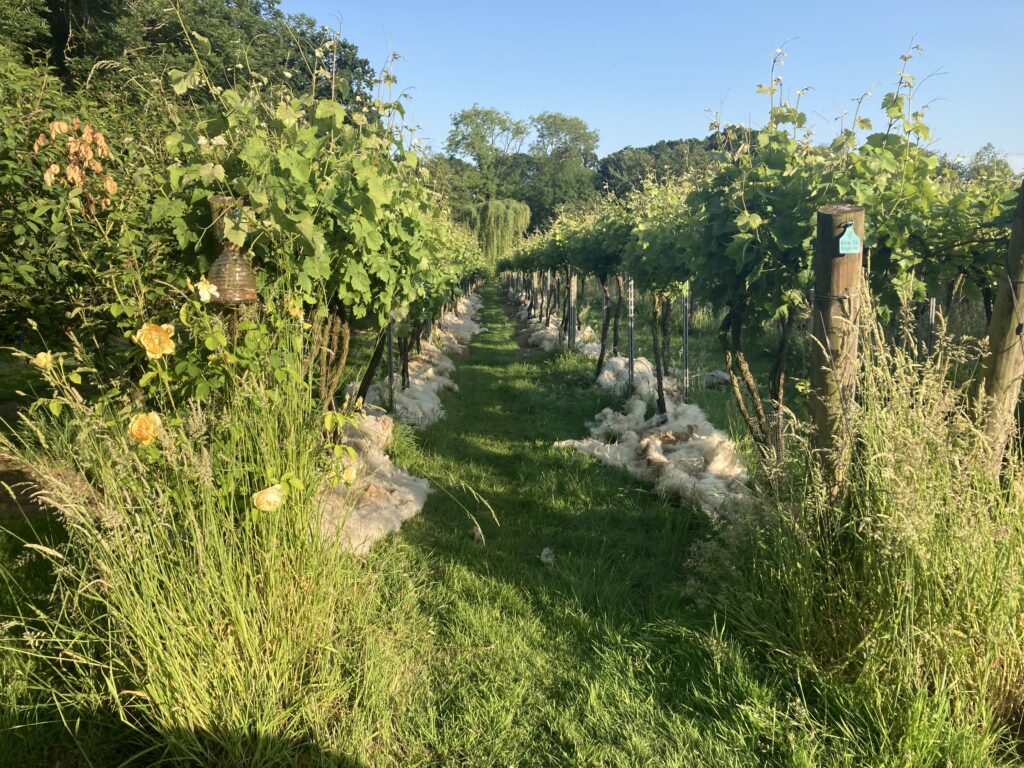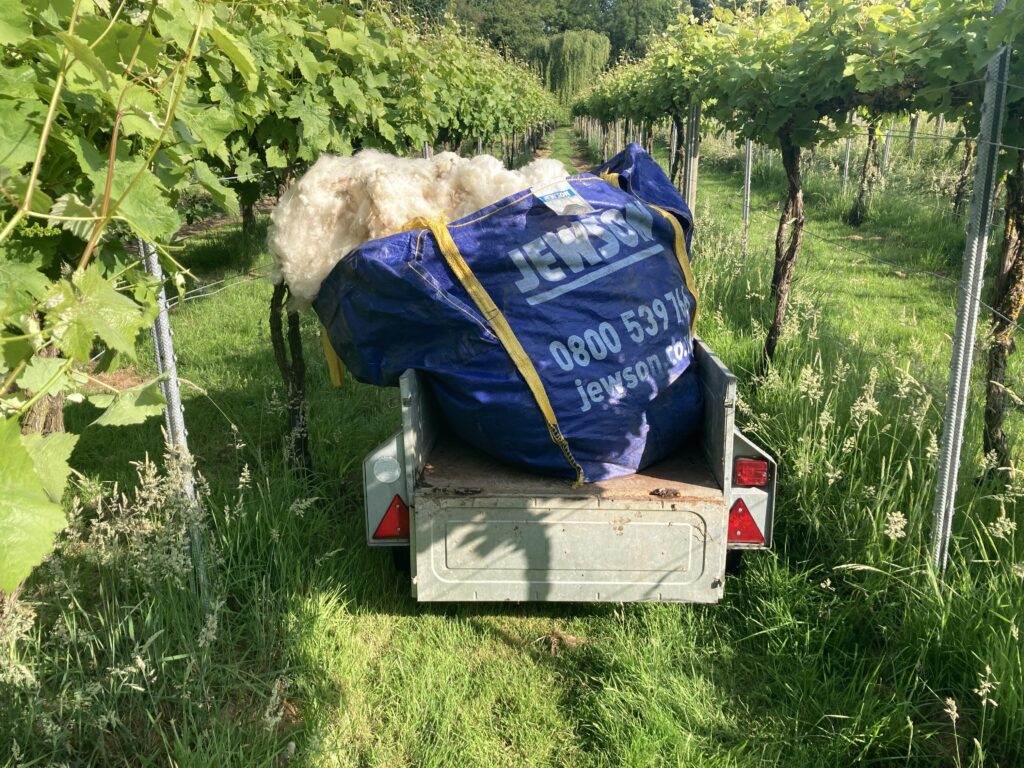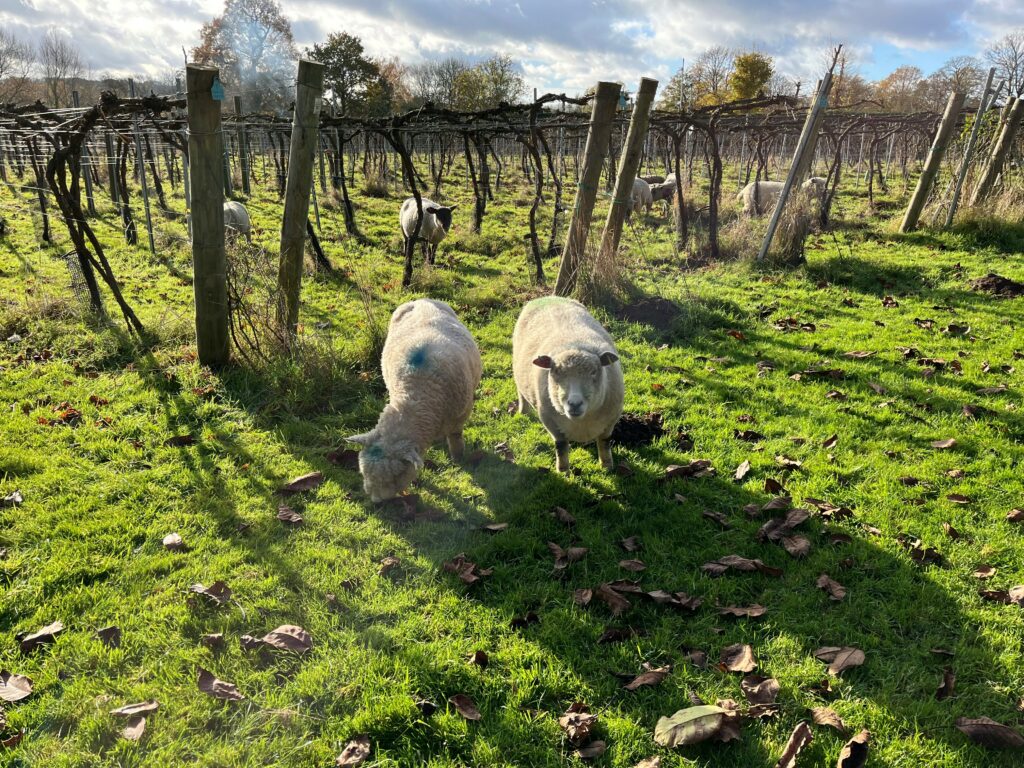Your basket is currently empty!
Sustainability
We are always very keen to not only reduce our environmental impact at the vineyard, but we are always looking for ways to improve things. In addition to embracing the sustainability goals of WineGB, here are some activities we have initiated:
Traditional methods
As long-time advocates of avoiding waste and using traditional methods, the vineyard was planted by hand. We only hired a contractor with a tractor for the trellis work when exhaustion set in! Farmyard manure had previously been dug into the potential vine rows by hand, and the resulting weeds removed by garden fork or weed wand.
All our vines are maintained by hand and our grapes picked by hand.
No Insecticides
We maintain a “No Insecticide” policy to protect the resident colonies of bumble bees and ladybirds, which are an important part of the eco-climate. In order to control wasps/hornets which can kill bees and decimate grape crops, we use hanging bell jar traps. Bees can not achieve vertical flight and as such cannot enter.
The vines are fed with a foliar feed every two weeks when in leaf to promote strong cellular growth in the leaves which protects against fungal disease thus reducing our use of fungicides. A fungicide is only sprayed when necessary and under the guidance of an agronomist who specialises in grapevines.
To further reduce the need for the use of fungicides, four PIWI grape varieties were planted (Solaris, Orion, Regent and Rondo) which have disease resistance.
Finding alternatives
Compost Strategy
Adaptation to the compost strategy beckoned to prevent double handling. Now, wherever the wildlife, or vineyard pointers, have dug a hole we put kitchen and vegetable waste directly in the ground and leave the rest of the work to the worms!
A similar approach is taken to harvest and winery by products of grape stalks, pressed skins, pips and yeast deposits from the fermentation tanks which are used as a surface dressing on the vine rows.
Natures Lawn Mowers




